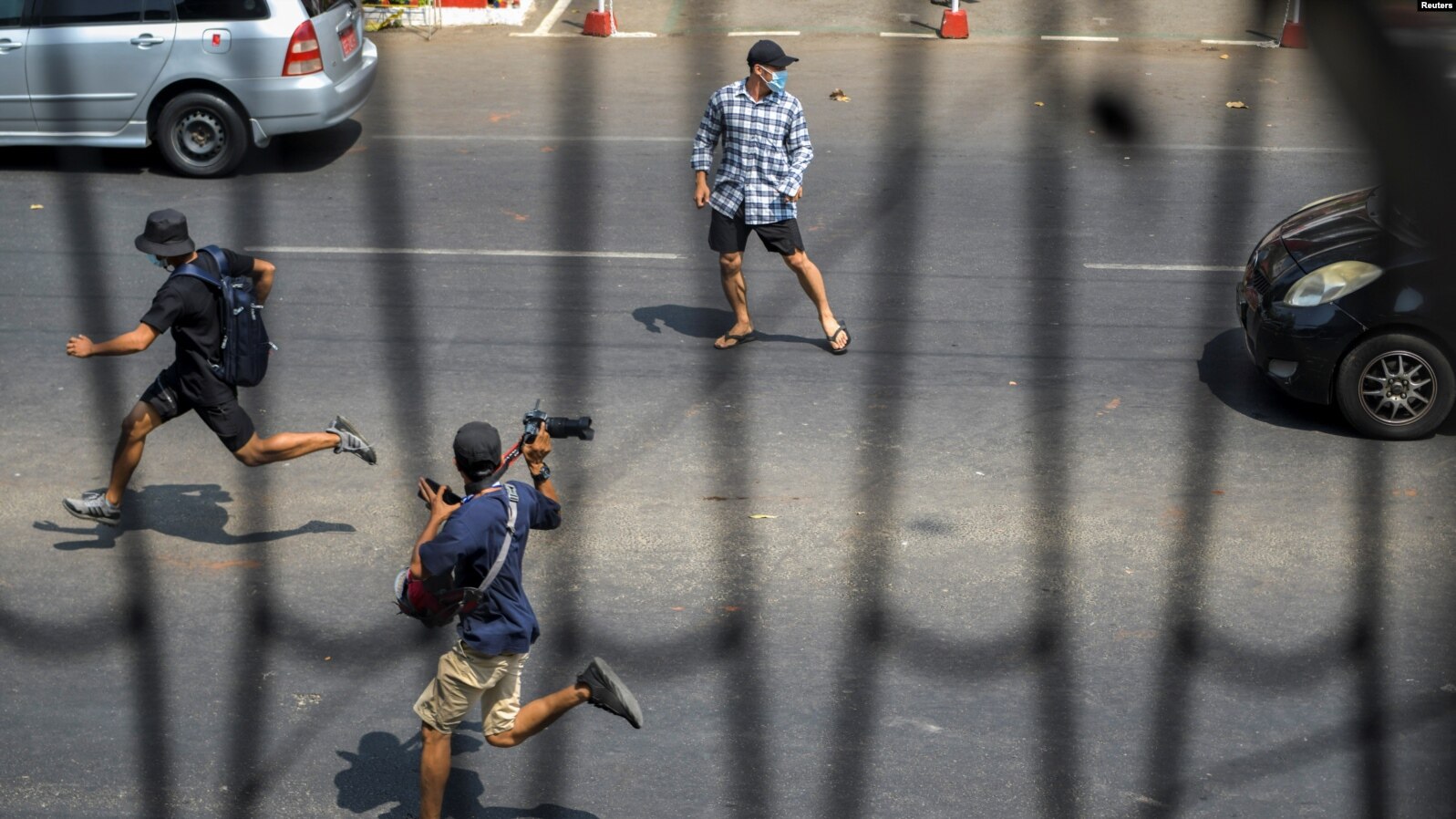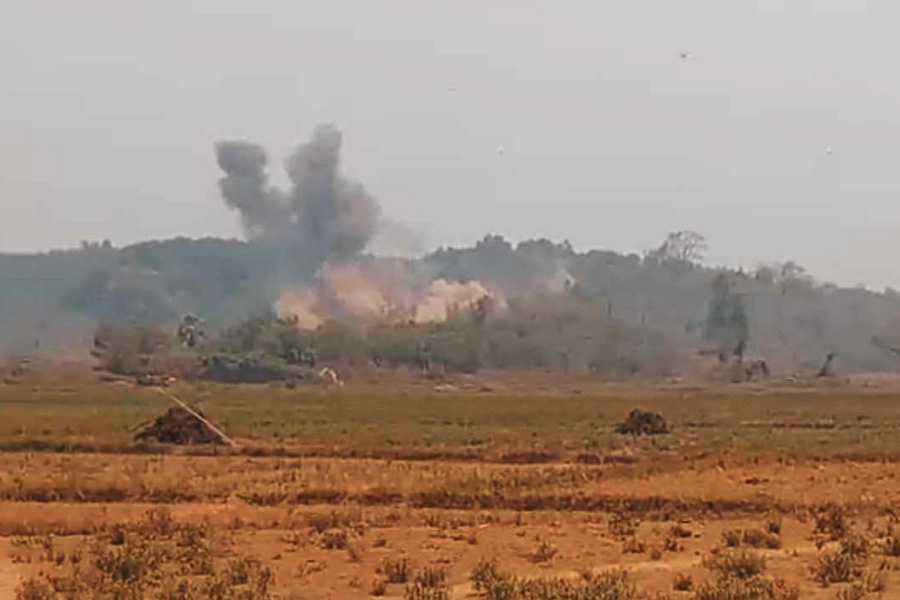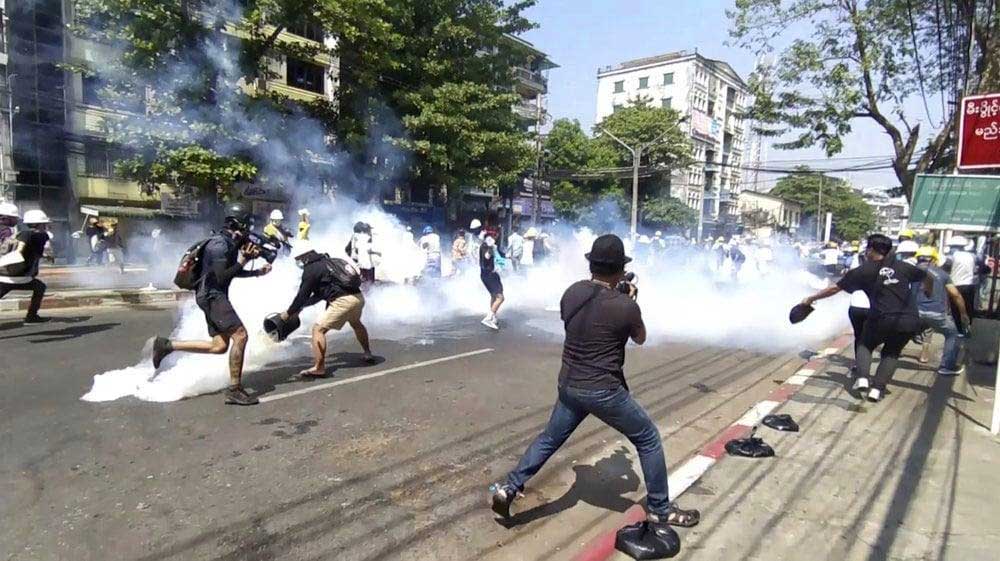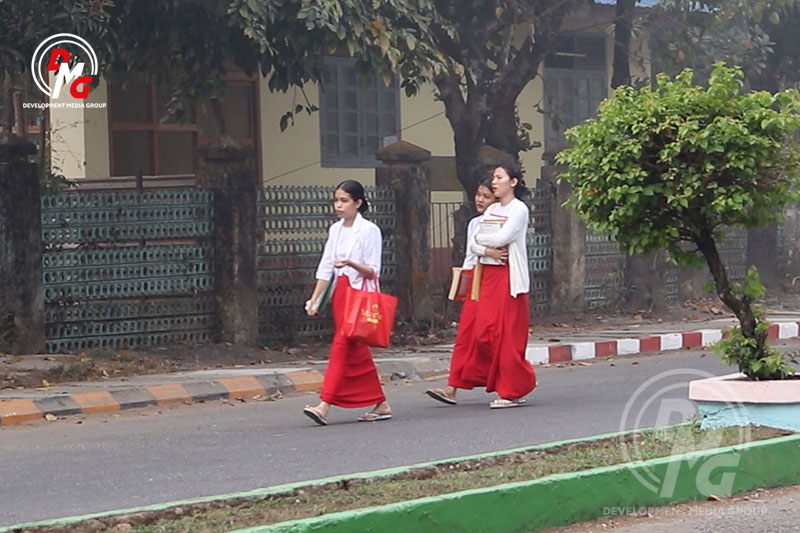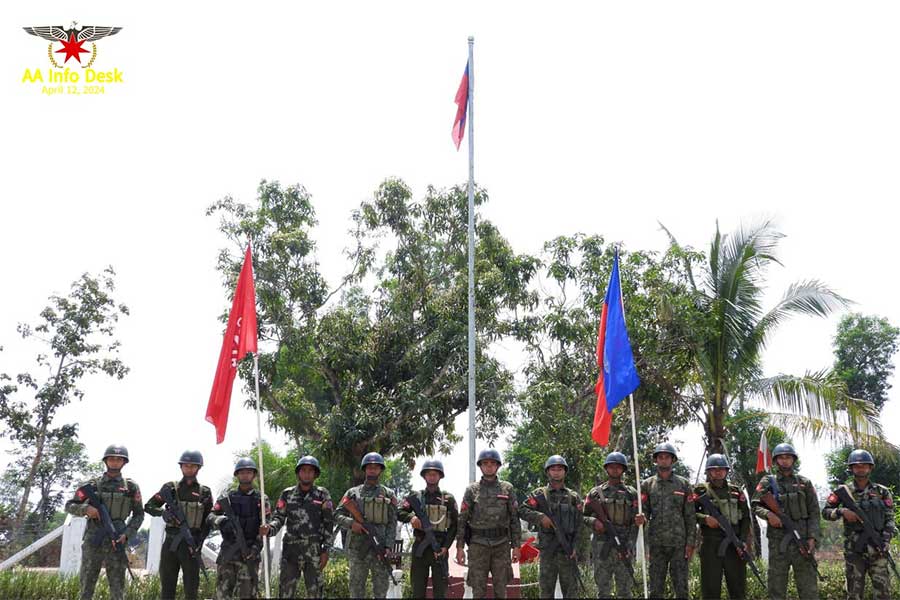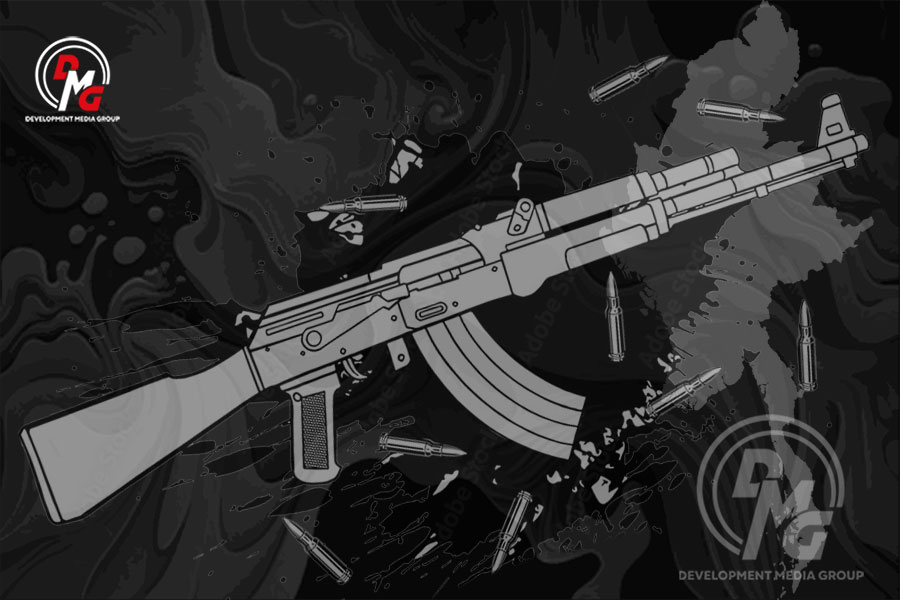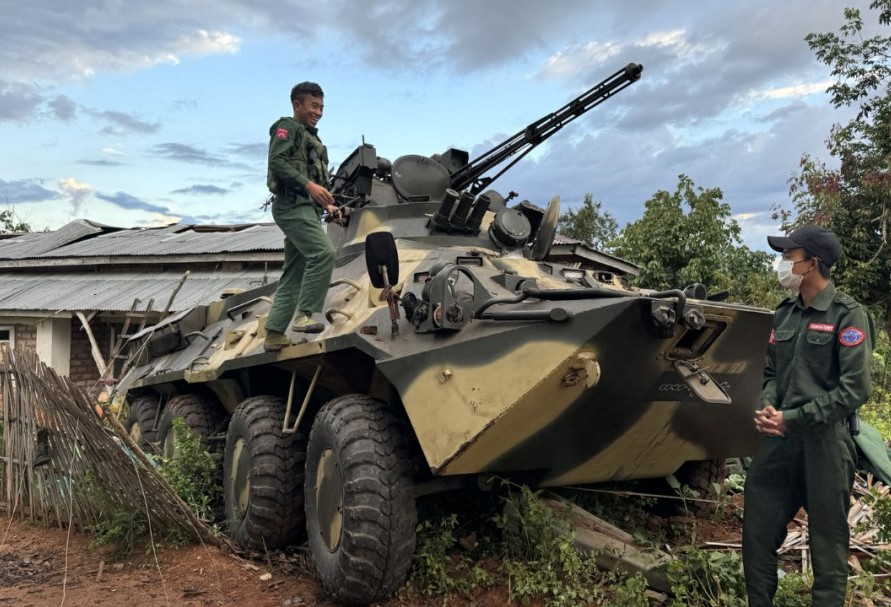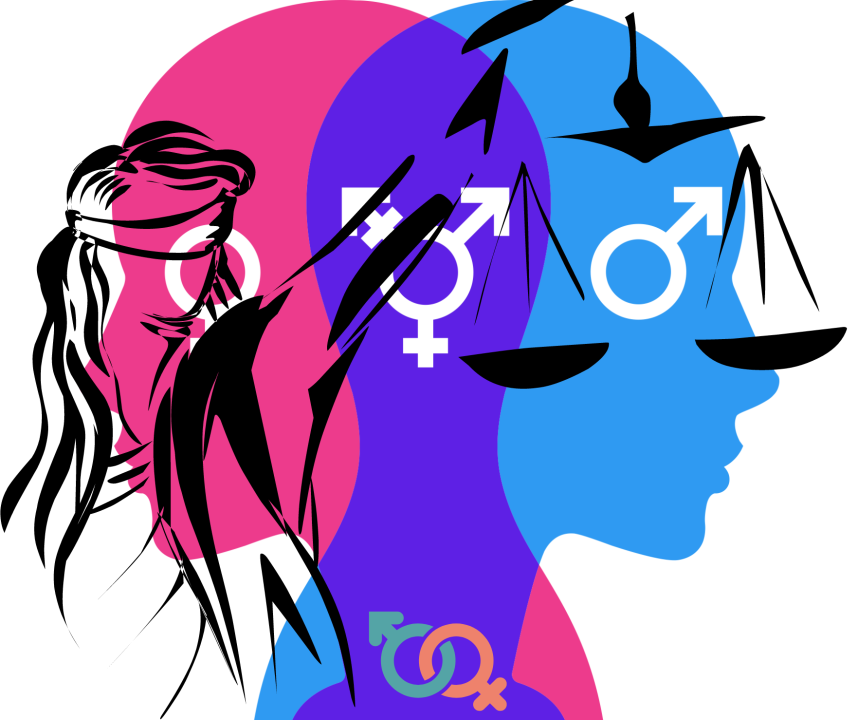- Nearly 4,000 houses destroyed last month in junta arson attacks
- AA accuses Muslim organisations of weaponising term ‘genocide’
- Diarrhoea blamed for three deaths at Ponnagyun displacement camp
- Chin resistance groups seize Chin State town with AA’s help
- AA seizes pair of strategic military camps in Maungdaw Twsp
Reports of counterfeit banknotes on the rise in Arakan State
A growing number of counterfeit banknotes have been found in circulation in Arakan State, according to cash handlers who have personally dealt with fake bills.
04 Apr 2022
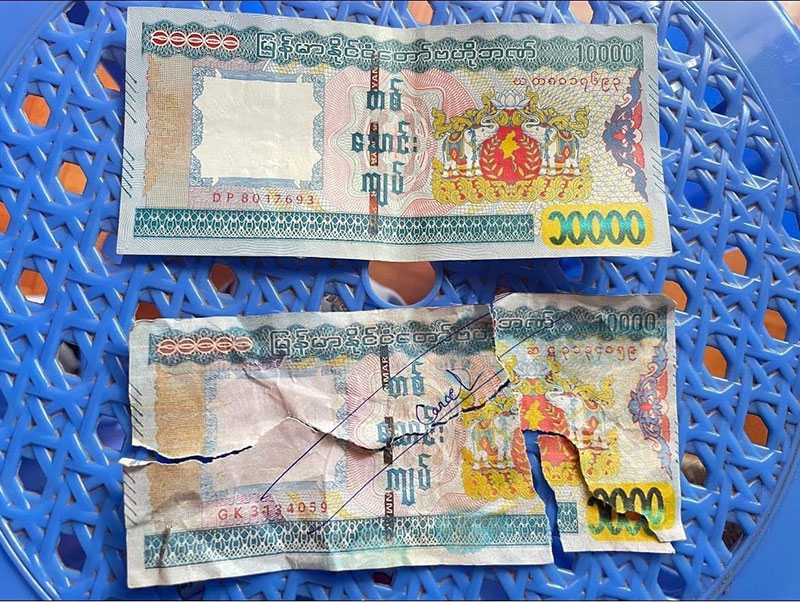
DMG Newsroom
4 April 2022, Sittwe
A growing number of counterfeit banknotes have been found in circulation in Arakan State, according to cash handlers who have personally dealt with fake bills.
Over recent months, businesspeople say they have received counterfeit banknotes in public cash transactions with increasing frequency, most of them being 10,000 kyat bills — the highest denomination available in Myanmar — mixed in with real ones.
U Than Tun, owner of ‘Kyaw’ appliance shop, said a customer recently made a purchase from his shop using counterfeit money.
“We have heard about counterfeit banknotes, so we check the money whenever we receive it. Someone bought appliances worth K400,000, and when he paid the bill, there were five [counterfeit] 10,000 kyat banknotes mixed in with real ones. We gave them back to him as soon as we found that they were fake,” he said, describing the counterfeit notes as looking “new”.
Since then, U Than Tun has been very cautious with the bills he receives, he said, examining them for thickness, watermark and other telling features.
Daw Zin Mar Aung, a Wave Money agent from the Arakan State capital Sittwe, said: “Last month, I received two 10,000 kyat counterfeit banknotes mixed in with real ones. I didn’t notice them at first though I checked the money when I received it. I tore them apart later.”
Urbanites are typically more adept at distinguishing between real and counterfeit banknotes than residents of rural areas, who are not as familiar with the problem and how to spot fake bills, according to businesspeople.
Ma Phyu Phyu Htay, a grocer from the town of Minbya, said she has personally dealt with counterfeit bills at least twice since January.
“There were some fake notes in my money when I went to the bank to transfer money. The bank marked the counterfeits so that I could not use them. I have personally dyed counterfeit money two or three times,” she said, referring to a common technique for detecting fakes. “As I could not use them, I had to tear them apart. And I had to pay from my own pocket when fake notes were discovered. It was not easy.”
U Khin Maung Gyi, vice chairman of the Rakhine Economic Initiative Public Co., Ltd. (REIC), said the post-coup economic slump and restrictions on withdrawing cash from banks are to blame for the proliferation of counterfeit bills.
“This problem will get worse if authorities fail to take action. People will have to suffer more. Authorities should take action against forgers. This problem happened because of the economic downturn amid the post-coup political turmoil,” he said.
Counterfeit banknotes are not a new problem, but it is widely agreed that the amount of bogus money in circulation has risen precipitously in recent months. It has also manifested in 21st century ways: A growing number of advertisements have been posted on Myanmar social media in recent weeks offering K1 million worth of counterfeit bills for K100,000 of real money.
Banks seize counterfeit banknotes received from customers — whether the cash holders are considered to be scammers or unwitting victims — and most of the fakes discovered are of the 10,000 kyat denomination, a private bank manager told DMG.
“We don’t have a record of the average amount of counterfeit bills we discover per month. But this problem is not new. We also dealt with counterfeit notes in the past,” he said.
The proliferation of fake notes will lead to inflation and public distrust in the kyat, causing greater hardship to low-income families in particular, he said.
An officer from the Criminal Records section of the Arakan State Police Force said there has not yet been an official report filed to police about counterfeit money in the state.
Section 102 of the 2013 Central Bank of Myanmar Law carries a sentence of 10 to 20 years in prison for counterfeiting currency. Section 101 prescribes three years’ imprisonment, a fine or both for using counterfeit money.

